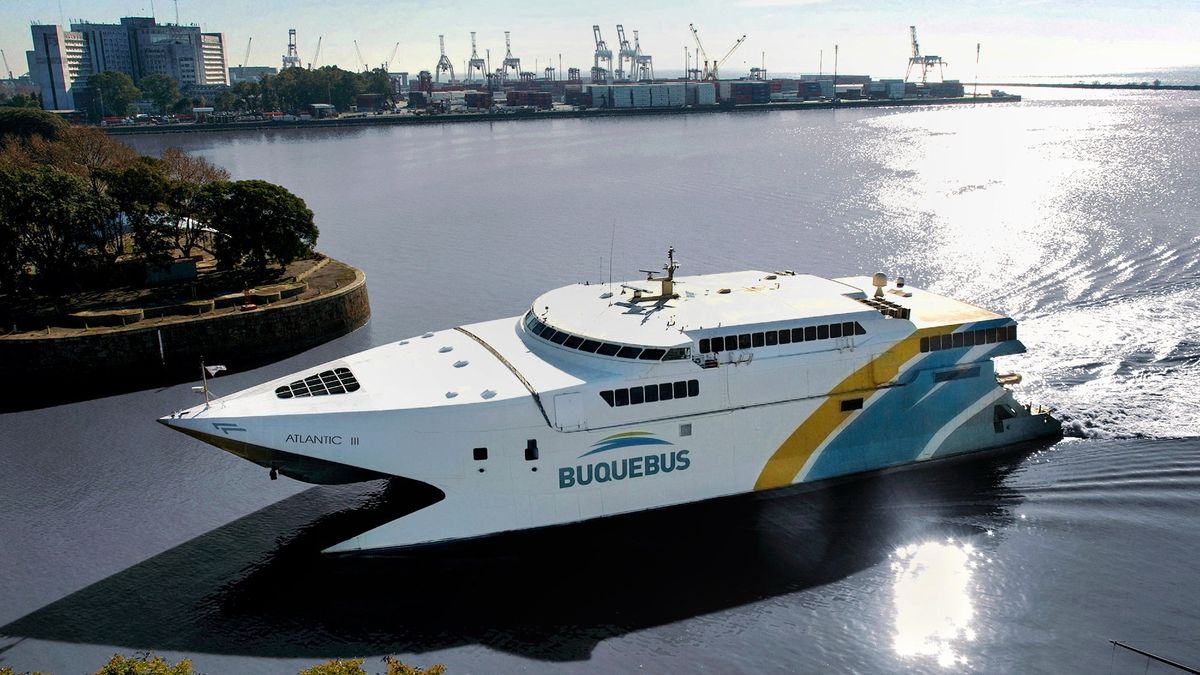So much Bus as Cologne Express have filed separate appeals in court to annul what they consider a compulsory tax that increases the value of tickets starting next May for arrivals to and departures from Uruguay.
“We have three challenges. All three refer to legal norms, but beyond that they also refer to large political agreements, reasonable within a liberal democracy,” he explained. Daniel Ochslegal representative of Buquebus Ambit.
Specifically, the company of the Argentine-Uruguayan businessman Juan Carlos López Menaunderstands that the government of Luis Lacalle Pou affected the principle of legality by creating an obligation by decree and not by law as established in article 10 of the Constitution, in addition to not respecting the principle of equality of public charges, since all immigration control posts in the country will be financed with the tax on river tourism.
“The only way to support this decision is for them to say that river transport companies have greater tax capacity, but here it is the other way around,” explained Ochs and gave a clear example: “the person who flies in business class to Spain does not pay it.” , but the one that enters through the port of Colonia does, despite the fact that both must undergo immigration control.”
The third point that Buquebus questions is the one that Ochs described as “shocking”: the Ministry of Interior admitted not having evaluated the cost of awarding the new immigration control system. “The State allows a company to collect it, but it does not know how much it costs,” he said.
The new tax on river tourism, which for tax experts consists of a tax, establishes that “international maritime or river passenger transportation companies that operate in any of the ports will be responsible for collecting the Price per Security Service to each of its passengers”.
In the case of cruise passengers entering or leaving Uruguay The collection and retention of the fee will be the responsibility of the maritime agency to which the vessel is consigned. The monthly collection of the fee will be retained by them and then “discharged in arrears to the provider of the awarded border control system.”
Buquebus, which had already challenged the call for bids and now made a second presentation against the award itself, considers that the biggest problem is validating an irregular administrative procedure. “The State gives you a partner, because it forces you to pay directly to the company (that carries out the control),” explained the company’s legal representative.
“In a healthy democracy, the parties involved must be consulted,” concluded Orchs, who explained that the government has not yet responded to the challenge to the tender even though the legal time to do so is about to expire.
The new tax on river tourism was also questioned by the Colonia Tourist Association, which asked the Executive to leave it without effect due to the impact it is expected to have on the number of visitors arriving to that department from Argentina, at a time when tourist activity is resentful of the economic crisis in the neighboring country.
Andrés Castellano, president of the association, said in dialogue with Ámbito that “this is a negative situation for Cologne because it is where the cost of the ticket has the most impact: our destination is the destination with the shortest stay in hours of a tourist in Uruguay and we have a very large number of visitors on the day. The impact of $2.10 plus VAT within, let’s say, a budget of $5,000 is not the same in Punta del Este or on a cruise than on a ticket where this impact is an average of around 10% of the annualized ticket.”
Source: Ambito




